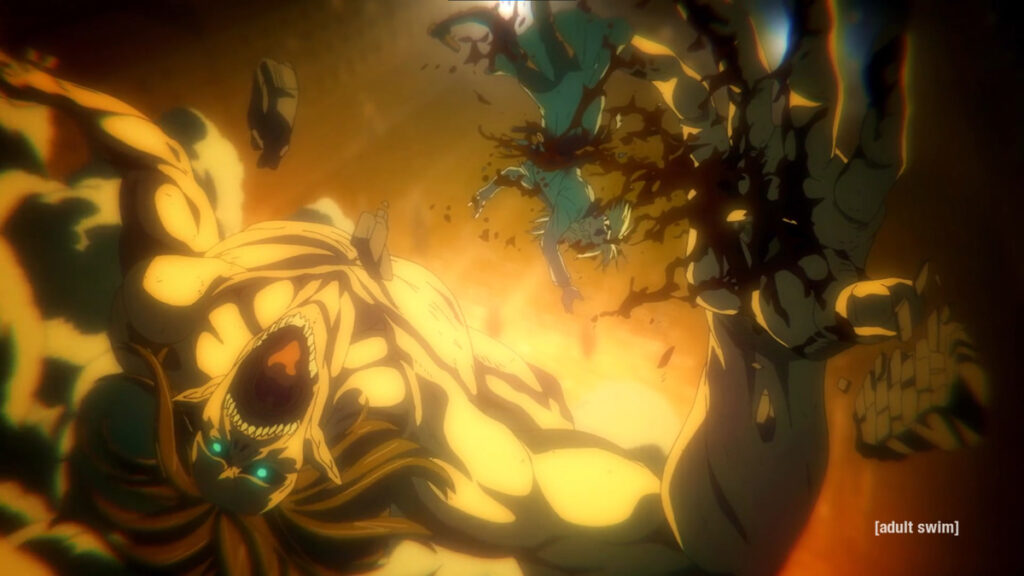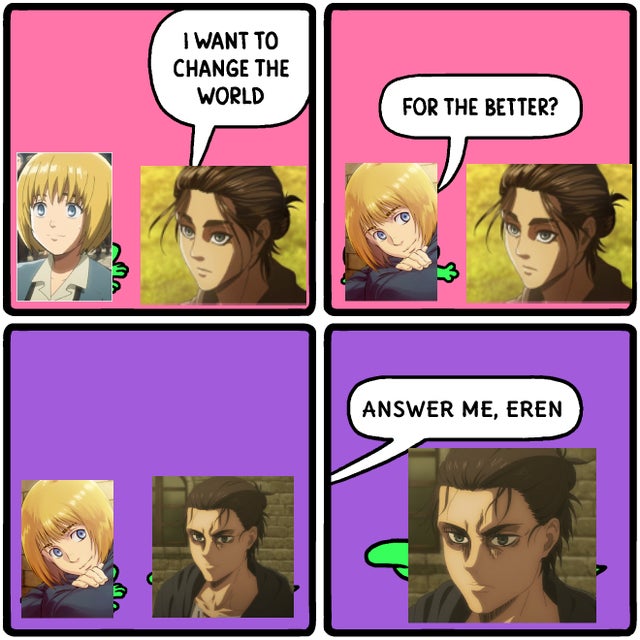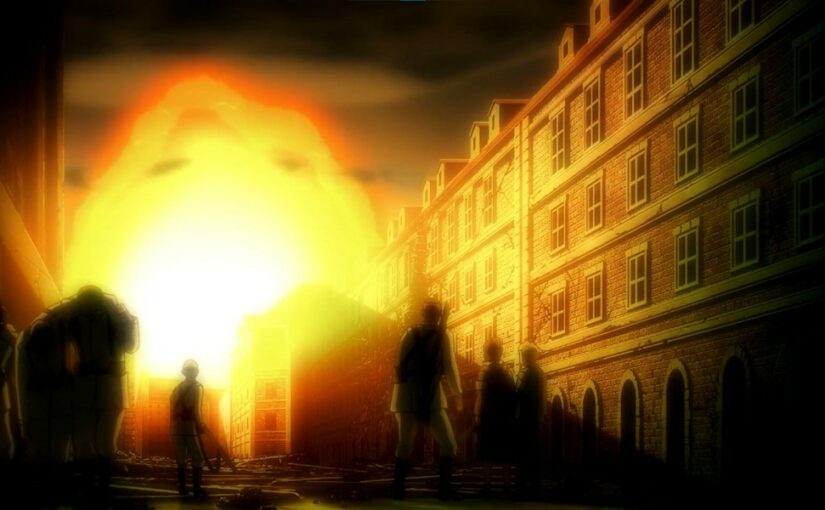Season 4 was shocking– nearly unidentifiable from season one. Rather than a story about saving humanity from man-eating monsters, Attack on Titan has become a complex geopolitical war thriller that touches on universal concepts of human nature and what it means to be free. There is nothing to not love about season 4. There is a lot to unpack from season 4, part one, and I don’t think a single post could ever do it justice.
No post about season 4 can avoid discussing the character transformation of Eren. Season 4 takes place four years after the conclusion of season three. And in that time Eren changed from a hurt angsty teenager to a cold-blooded war criminal who is willing to sacrifice everything to bring the end of titans.

This shocking change in Erin hurt me. We see the naïve shounen protagonist that we are all cheering for turn into a monster willing to kill civilians and even plans on using his powers to turn all eldians infertile in his euthanasia plan. Unlike the Game of Thrones ending where Daenerys Targaryen changed suddenly, the change of Erin felt natural since it makes sense given the context and it was foreshadowed.
It is prevalent for shounen protagonists to have a tragic back story. Consider Tanjiro in Demon Slayer or the Elric brothers in Fullmetal Alchemist. Despite tragic, painful backstories, the heroes never towards revenge or sinister because of their past. I was expecting the same thing to happen to Erin, he would come out of his funk and become the shounen character this genre expects, but I think it is too late for Erin to change.
Within the first few episodes of the first season, Erin had his home taken from him, watched his mom get eaten by a monster. All he had left were his two friends. But, the world is a cruel place, and Erin suffered more. Driven by the burning desire to kill titans, he joined the military at a young age and watched scores of men die gruesome deaths. These problems only became exacerbated by the fact that he himself inherited the powers of the founder titan from his father. No longer is he just a soldier; he bears the burden of protecting the entire island of Paradis from threats both foreign and domestic. On top of all that, he has faced betrayals from close comrades, and hundreds of people have died to save his life.
Simply put, it makes total sense that Erin would make the drastic change that he did in season 4. That puts the story in an interesting place since we no longer know who is right and who to cheer for. This is commonly known as the Rashomon effect, a story where from the view of each character, they are in the right. From this point of view, the story can discuss issues such as: human nature, genocide, freedom, war. Each of these topics themselves warrants a full blog post. Amazingly, Attack on Titan has managed to build up such a complex story with a vast set of characters while never feeling overbearing or disconnected.

